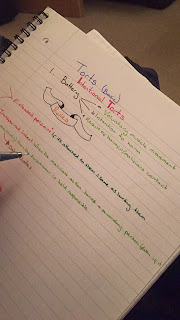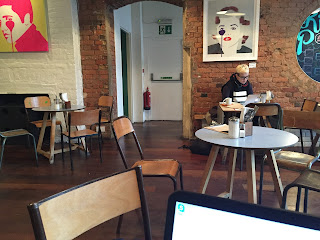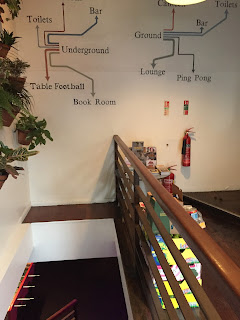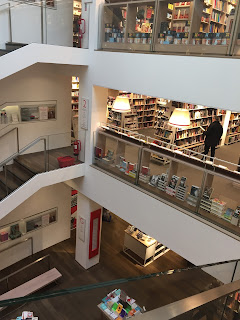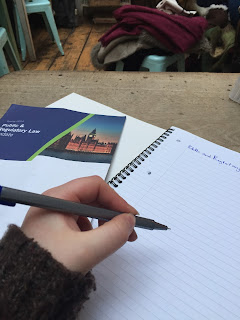Don't
tell me you're too young!
Recently
I've had a few people contact me asking for advice and guidance for
their future careers. Having this kind of interaction is great – I
love helping people and giving tips – but they say the same thing
every time.
I know I'm still really
young...
 |
| Goal planning can be messy and time consuming |
The
truth is that your age doesn't prevent you from taking steps to
ensure your desired future. The more you allow yourself to use the
excuse that you're young the longer it will take to achieve your
goals. At every age, there is something that you can do to ensure
your future career.
The
Underage Lawyer started when I was still sixteen. At this time, I
felt frustrated by the limitations I experienced because of my age. I
was often overlooked by peers or turned down for work experience.
However, never should you allow the 'too young to act' mentality
infiltrate your mindset. Individuals should never restrict their
efforts towards their goals because of their age. All people, young
and old, are capable of reaching goals.
So
often we look at ourselves in statistics rather than qualitative
data. The best example is a resume; each one is a pure statistical
list none of it explains who we are or where we originated. Something
so simple as a resume shows the misconstrued values of society.
No
longer do employers manually and tediously trawl through cover
letters and references. Instead, keyword processors pick out the
clients which can tick the right boxes. Similarly young people with
lots of enthusiasm find themselves sidelined...and eventually
disinterested.
No
person can remain motivated when it seems as if there is no chance of
opportunity. So often our brightest and youngest face a workplace
that can't see them. For the under-undergraduates, there's no chance
for professional involvement.
I
hope that this blog succeeds showing that age is less of a limitation
and more of an indication to employers of the potential a young
person can hold. After all, if the only reason you have for not
hiring someone is their age - what kind of logic is that?
To
those wanting guidance...
While
you're still in your childhood years, you should do your best to
explore as many options as you can. As a teenager, there's a lot more
that you can do to prime yourself for the role that you want to take
on.
 |
| Start your work right away- no time to lose! |
Below
I dot out some simple steps that you can take to help yourself find
the path that you want to follow.
At
13-14...
At
this age school should be your primary focus. Do some research to
understand:
- What the education requirements are
- How competitive the field is
- Any subjects you should pay extra attention to
The
school is the perfect place for you to connect with your teachers.
Ask them for assistance in finding the right path for your future
career. Teachers have unique opportunities to connect with different
organizations. Some of which may be able to offer you come-and-try
days.
 |
| Use this time to find your passion and inspiration as well |
At
14-15...
At
this age school should still be your primary focus. But it is also
the perfect age to begin delving
deeper into your potential field of
work.- Create a mind map of all jobs related to your chosen field
- Find the best educational institution for you to attend
- Make a list of any requirements you haven't yet fulfilled
- Find a role model(s) who you can research to find out what it is that made them so successful
At
16-17...
- Begin to find some work experience, just a few days if you can manage it
- Finalize any arrangements to complete non-age restricted requirements
- Connect with potential employers and find out what they look for in their employees
- Build a relevant resume
- Find an alternative pathway for the course if the original plan fails
 |
| The plans you make may seem boring but they are vital to your future |
Above
is not a definitive list, but a suggestion of the way in which you
might like to plan out your career endeavors. Remember that you will
face a lot of rejections, but it doesn't mean that you shouldn't keep
going. Don't be discouraged by an uninterested or negative reaction.
Instead, use it as an opportunity to build your internal strength and
courage.
There's
a lot to learn from rejection and starting young will help to
accelerate you through that learning process.
Lulu Hensman
Lulu Hensman
